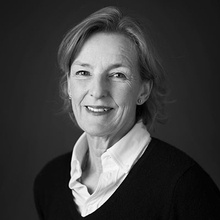Helene Schjerfbeck
(White roses in a glass)
Signed H. Schjerfbeck. Executed whilst on one of the artist's two visits to St Ives, Cornwall - the first being in 1887-88 and the second in 1889-90. Panel 25.6 x 34.5 cm. Bukowskis would like to thank Ms. Leena Ahtola Moorhouse for information on this hitherto unknown painting which will be included in the listing of Schjerfbeck's works.
Buyers in the European Union without VAT registration will be charged an import VAT of 12% in addition to the buyer's premium, on the hammer price.
Import VAT
Import VAT (12%) will be charged on the hammer price on this lot. For further details please contact customer service +46 8-614 08 00.
Literature
Leena Ahtola-Moorhouse (ed), "Helene Schjerfbeck 150 år", exhibition catalogue, Statens konstmuseum Ateneum, Helsinki, 2012, compare "Gula rosor i glas", ca 1888, oil on canvas, illustrated p. 135 (cat. no 164).
More information
The fishing village St. Ives in Cornwall on the Landsend peninsula was popular with artists, and attracted an international community of painters that worked and socialized in the small town. In July 1887, Helene Schjerfbeck traveled for the first time to St. Ives. She was invited by her friend Marianne Preindlsberger, married to the English artist Adrian Stokes. Einar Reuter, writing under the pseudonym H. Ahtela, describes the time in St. Ives as a happy time for Schjerfbeck. The small group of artists, to which Schjerfbeck belonged, hung out in Stoke's studio and met several times a week. The special light and mild climate allowed painting en plein-air even in winter. The surroundings were beautiful, the joy of work burned in Schjerfbeck. The financial situation for the near future was secured.
Schjerfbeck found a studio in a tower overlooking the harbor and the sea. In one of many surviving letters to fellow painter and friend from her Paris days, Maria Wiik, she describes the view from her window - she would watch the fishing boats returning into the harbor in the evenings, lantern by lantern - the sea looked like the Champs-Elysées. It was difficult, however, to use the fishermen as models as most of the men spent their days at sea. Instead, the choice of motif fell on children, landscapes and interiors. In 1888 she completed the painting The Convalescent which probably draws on her childhood experience. This work is an unsentimental depiction of a sickly young girl in a wicker chair, contemplating a budding twig in a vase on a table before her. The buds seem to hold out the hope of recovery. The painting was awarded a bronze medal when it was exhibited at the 1889 World’s Fair in Paris.
The painting "White Roses in Glass", a previously unknown oil on panel, has great similarities to the canvas "Yellow Roses in Glass" executed in St. Ives 1888. In the painting in this auction, Schjerfbeck lets the interplay between light and color have free play. The heavy roses shine white against the somber moss-green leaves. The surface of the table dissolves into the ash-gray background, enhancing the sense of gravity that pulls the rosebuds down over the edge of the glass.
Schjerfbeck would return to still lives of fruit and flowers throughout her career. The realistically executed natures mortes, such as this newly discovered work from the 1880s, gave way to the characteristic and experimental fruit paintings she created towards the end of her life. They play a significant role in her ouevre and among them you find many of her most daring and vital works.









































